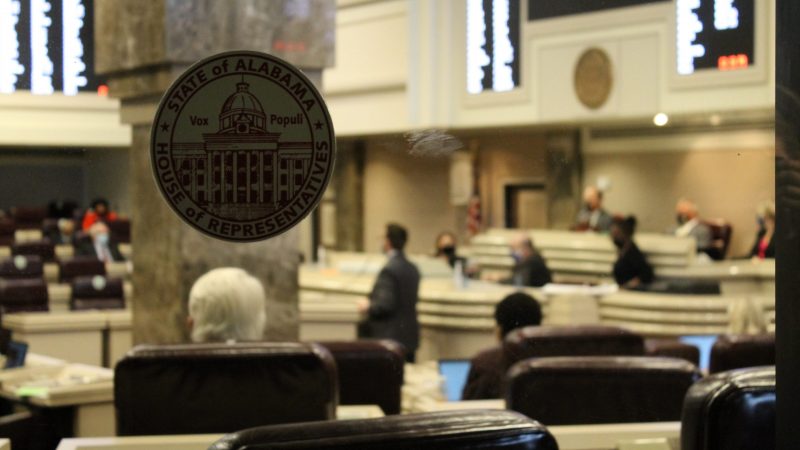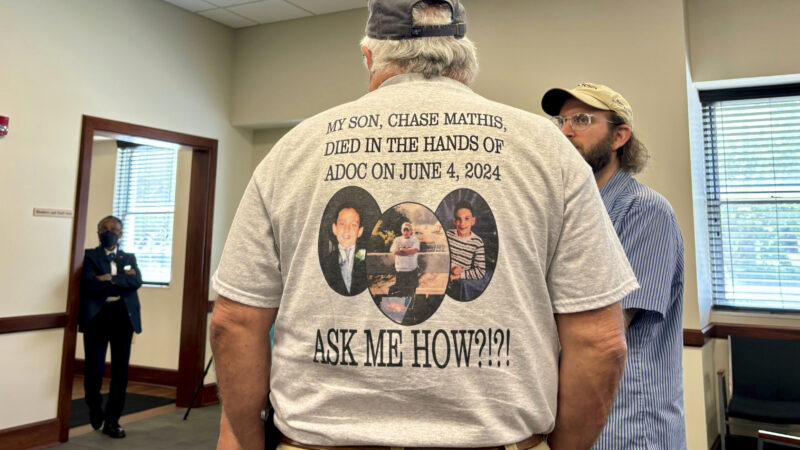Ivey calls special session on relief funds
MONTGOMERY, Ala. (AP) — Alabama Gov. Kay Ivey on Tuesday announced a midweek launch of a special session on how to use $771 million in pandemic relief funds, with lawmakers set to consider a plan to steer large sums to water and sewer projects, broadband expansion and healthcare costs.
The already anticipated special session will start Wednesday.
Legislative committees will hold a public hearing Wednesday on a draft proposal that would designate the money for spending categories such as broadband and the water and sewer projects. The bill specifies funding for previously identified high-need water and sewer projects, but largely puts state agencies in charge of deciding how to disperse the funds.
Alabama has $580 million remaining from the state’s first $1.1 billion installment from the American Rescue Plan. The state also has $191 million allocated through the America Rescue Plan’s Capital Projects Fund.
In her announcement, Ivey urged lawmakers to “direct these funds to meet some of Alabama’s biggest challenges like statewide broadband connectivity, water and sewer infrastructure, as well as investing funds in our hospitals, nursing homes and other health care providers.”
“We must be smart with these one-time, federal dollars by wisely investing -– not just casually spending them. This is not free money,” Ivey said.
The Republican governor, while calling a special session to spend the federal dollars, also criticized the Biden administration and the Congress that approved the funds.
“While states like Alabama are making record economic comebacks, Congress and the Biden White House are wanting our country to spend more and more federal dollars, and now we are tasked with allocating the American Rescue Plan Act funds. I have made clear, that unlike Washington, D.C., Alabama will be wise with these one-time federal dollars,” Ivey said.
Under the draft legislation, the state would use the $580 million to allocate: $225 million to water and sewer projects; $85 million for broadband expansion; $79 million to shore up the Unemployment Compensation Trust Fund; and about $170 million for various healthcare costs, including $80 million to reimburse hospitals and nursing homes for pandemic-related expenses and $30 million to assist rural hospitals.
The administration would get $7.8 million to reimburse the costs of reporting and auditing the use of the funds and $11 million would be used to reimburse county jails for housing state inmates during the pandemic.
A little more than half of the water and sewer funding would be used for previously identified high-need projects that will be prioritized under a ranking system created by the Alabama Department of Environmental Management. The other expenditures are not earmarked.
House Ways and Means General Fund Chairman Steve Clouse, a Republican from Ozark, said the plan addresses some of the state’s largest needs, ranging from healthcare costs to sewer infrastructure.
“We are taking care of a lot of issues, here,” Clouse said.
Clouse said an idea floated last week to use money for state parks was abandoned in favor of using more money for broadband expansion.
The state also has $191 million allocated through the America Rescue Plan’s Capital Projects Fund. The proposed legislation would put the Finance Department in charge of using the money for broadband expansion and other capital needs related to the pandemic.
Dr. Don Williamson, the president of the Alabama Hospital Association, said state hospitals took a $200 million financial hit during the pandemic because of expenses such as hiring traveling nurses to address staff shortages. Williamson said he was pleased to see efforts to allocate some money toward healthcare providers, but said they will need additional funds when the state gets the additional installment.
“We view this as a journey,” Williamson said.
A.J. McCampbell, a Democrat from Demopolis, said his priority is seeing funding for healthcare because of the financial strain that the pandemic has put on hospitals.
Rep. Chris England, a Democrat from Tuscaloosa, said he is pleased the proposal steers money to broadband expansion and water and sewer infrastructure. He added that the money has the potential to do some “real good” for the state, but criticized Alabama’s previous use of pandemic funds to build prisons.
Alabama came under criticism last year for using $400 million — nearly 20% of the state’s total $2.1 billion allocation from the American Rescue Plan — for prison construction.
“It is just a real negative reflection on priorities that we still haven’t matched up to the $400 million that we spent on prisons,” England said.
Updated 1/19/22 with quotes from lawmakers.
Alabama prison chief responds to families’ criticism
The department said that a number of changes have been made since Corrections Commissioner John Q. Hamm was appointed in 2022. The department said hiring has increased, and there are ongoing efforts to curb the flow of contraband and improve communications with families.
40 years after ‘Purple Rain,’ Prince’s band remembers how the movie came together
Before social media, the film Purple Rain gave audiences a peak into Prince’s musical life. Band members say the true genesis of the title song was much less combative than the version presented in the film.
Park Fire in California could continue growing exponentially, Cal Fire officer says
Cal Fire has confirmed that over a hundred structures have been damaged in the Park Fire, which grew overnight near Chico, Calif. Difficult firefighting conditions are forecast through Friday night.
Checking in with Black voters in Georgia about the election, now that Biden is out
Some voters who could be key to deciding who wins Georgia. What do they think about Vice President Harris becoming the frontrunner in the race to be the Democratic nominee?
Tahiti’s waves are a matter of ‘life and death’ for surfing Olympics
Tahiti's Teahupo'o wave has a slew of riders for the Paris 2024 Olympics. NPR finds out why it's called one of the most dangerous waves.
Researchers are revising botanical names to address troubling connotations
Since the mid-1700s, researchers have classified life with scientific names. But some of them have problematic histories and connotations. The botanical community is trying to tackle this issue.




